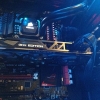Mysterious issue preventing me from completing build :(
-
Featured Topics
-
Topics
-
sunze ·
Posted in Troubleshooting0 -
LiterallyDiego ·
Posted in Phones and Tablets0 -
ShadeBorderlands ·
Posted in Programs, Apps and Websites2 -
0
-
realfireguy ·
Posted in Graphics Cards5 -
AbyssSF ·
Posted in New Builds and Planning1 -
2
-
Nesy ·
Posted in Troubleshooting5 -
Ripred ·
Posted in Troubleshooting0 -
7
-
-
play_circle_filled

Latest From ShortCircuit:
I tried 20 influencer foods, here are the best… and the worst…

















Create an account or sign in to comment
You need to be a member in order to leave a comment
Create an account
Sign up for a new account in our community. It's easy!
Register a new accountSign in
Already have an account? Sign in here.
Sign In Now